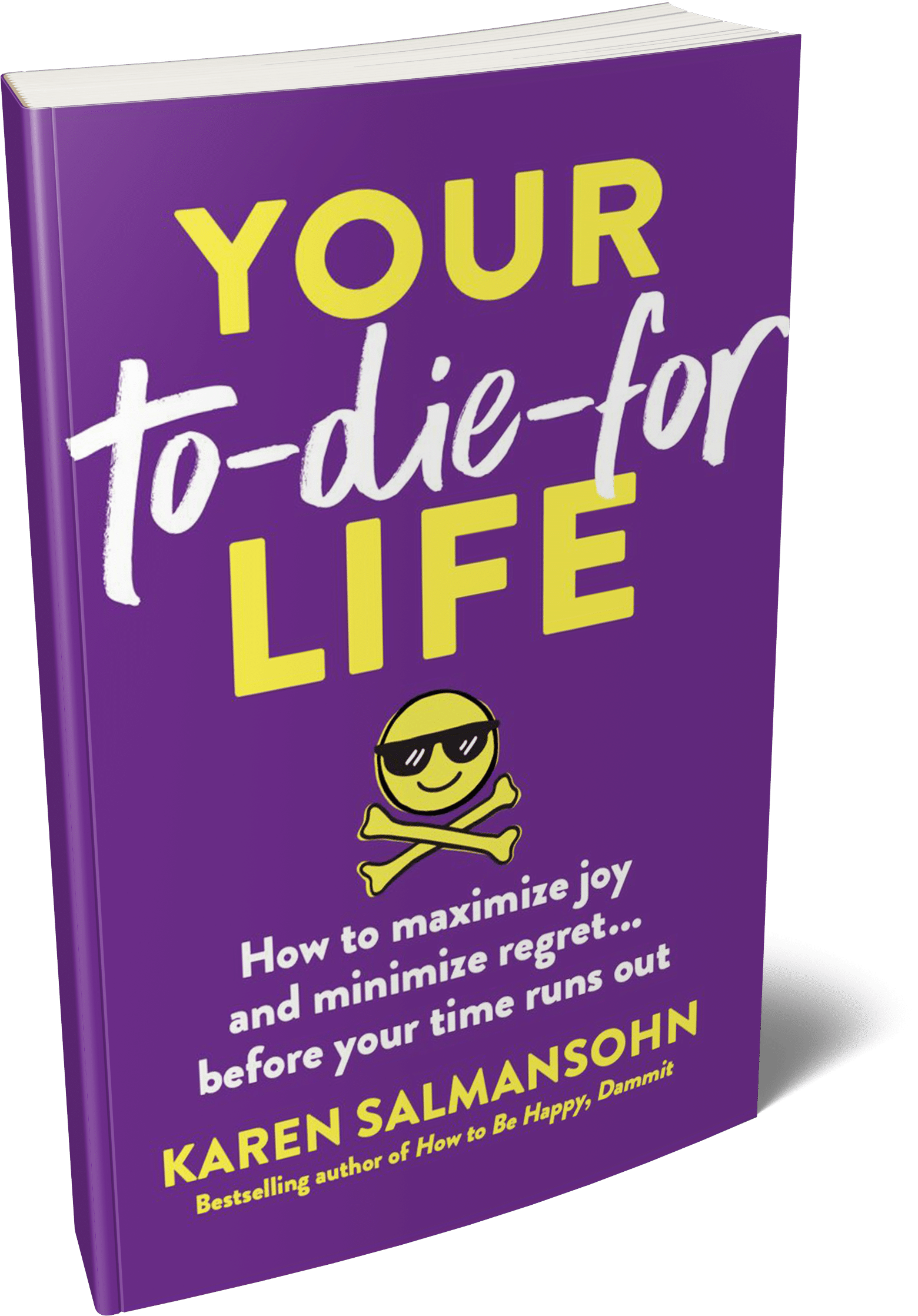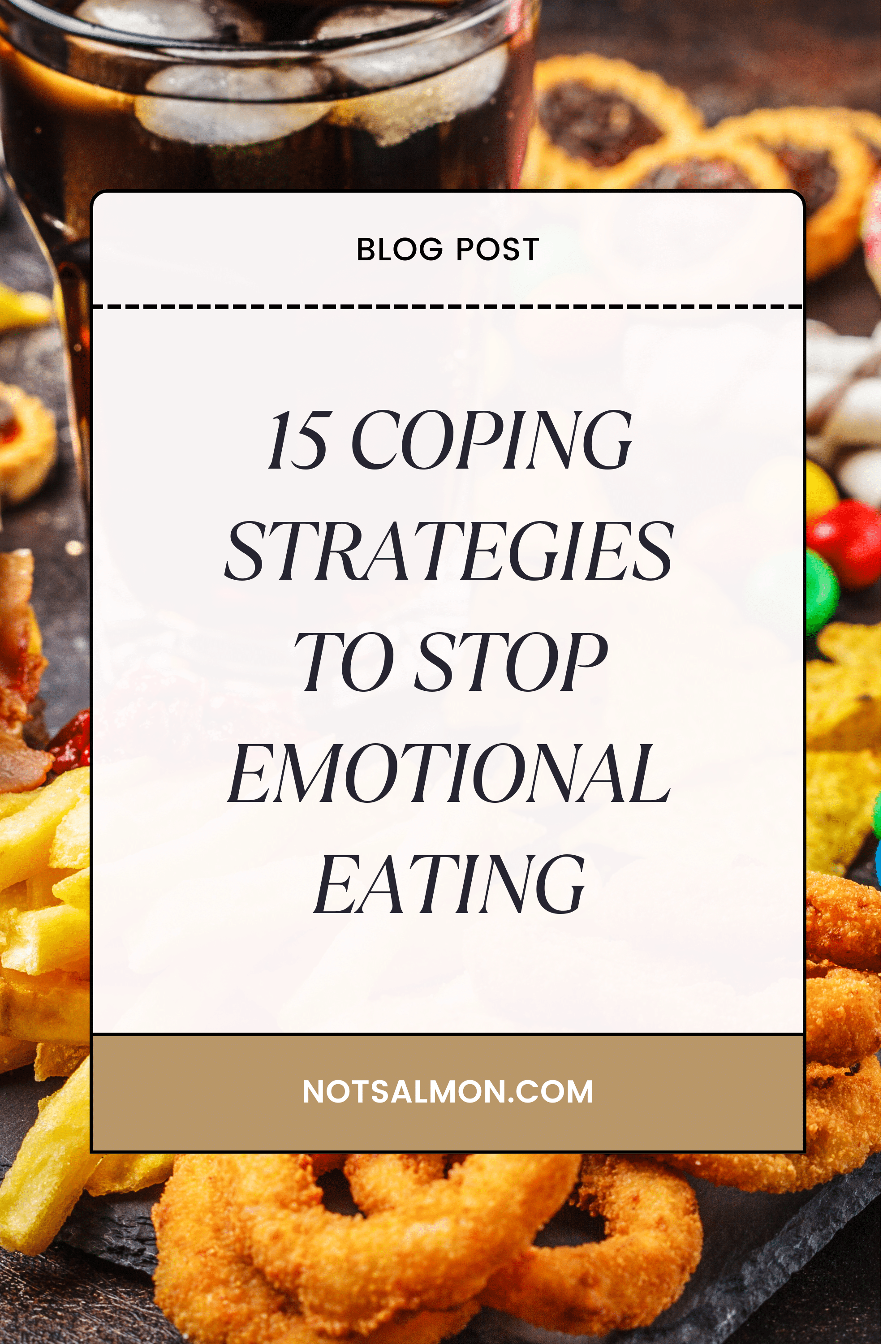
Get A Sneak Peek at my book “Your To-Die-For Life”!
Get a FREE sneak peek! Learn how to use Mortality Awareness as a wake up call to live more boldly.
 Discover effective coping strategies to stop emotional eating and regain control of your health. Learn to address the root causes and replace emotional eating with positive habits.
Discover effective coping strategies to stop emotional eating and regain control of your health. Learn to address the root causes and replace emotional eating with positive habits.
Ever find yourself halfway through a tub of ice cream after a tough day, even though you had dinner just an hour ago? Or maybe it’s those salty chips that call out to you when you’re feeling lonely? You might be thinking, “I know, I know, I shouldn’t be doing this…”
But listen, there’s no judgment here.
Many of us have been there. Myself included.
I’m a recovered emotional eater. So I personally know how strong that pull towards food can feel. Plus I also know that with the right coping strategies, you can break free from emotional eating.
(I dive deeper into everything I did to stop my unhealthy binge eating – inside my online program Stop Emotional Eating Online Course – which is both nutritionist and therapist recommended.)
In this article I will be sharing 15 practical and effective coping strategies to manage emotional eating – each designed to help redirect those emotional impulses and create healthier habits.
 Whether you’re searching for ways to understand emotional food triggers or seeking actionable steps to build resilience against emotional eating, these 15 coping strategies can be your roadmap.
Whether you’re searching for ways to understand emotional food triggers or seeking actionable steps to build resilience against emotional eating, these 15 coping strategies can be your roadmap.
Cravings come in waves. Can you ride it out? Just a brief 15 minute distraction might be all you need.
Example In Action: Instead of raiding the pantry, try distracting yourself with a puzzle or a short online video. By the time you’re done, that craving might have passed.
Before you snack, pause and reflect. Are you really hungry or is it something deeper?
Example In Action: Jot down your emotions in a journal. It’s amazing what a little reflection can reveal – and how shedding light on your feelings can help you to better regulate your emotions.
What’s your big-picture motivation? Whether it’s for better health or self-confidence, remind yourself.
Example In Action: Keep a photo or a quote that resonates with your ‘why’ on your fridge. It can act as a visual and verbal reminder whenever you’re tempted. (Learn more NLP tools for emotional eating here!)
Visualize how you’ll feel after giving in to the urge to binge. Often, the aftermath isn’t as pleasant. Then project into the future how great you will feel if you resist the urge – and choose to build up your healthy habit regime instead.
Example In Action: You could write down how you felt the last time you indulged, and refer back to it during weak moments. Or create a Pinterest board of your healthy lifestyle goals that you want to aim yourself towards.
Have you ever heard the saying, “A problem shared is a problem halved”? Before you turn to food, consider turning to a friend. Speaking your feelings can be incredibly freeing.
Example In Action: Next time you’re feeling the urge, pick up the phone and call someone supportive. You could talk with them about your urge to splurge on junk food. Or you could simply discuss your favorite movie and shift your focus entirely away from food.
If you don’t feel comfortable talking to a friend about your emotional eating issues, it can be helpful to work with a trained recovered emotional eater – who will listen and offer guidance specific to your situation. Learn how to work with me here..
Stay engaged! Dive into a hobby or find a new passion.
Example In Action: Join an online course or try DIY crafts. Keeping your mind occupied can do wonders.
Physical activity is like a reset button. Even a quick dance to your favorite tune can shift your mood.
Example In Action: Next time the urge strikes, try doing ten jumping jacks. That quick burst of energy might be all you need.
Breathe in the fresh air. Appreciate the beauty of nature. A change in environment can change your perspective.
Example In Action: Take a short walk around your block or spend a few minutes in your garden. Nature has a magical way of calming the mind.
Stay grounded. Breathing deeply even for a few minutes can be transformative and bring about more self love and self acceptance.
Example In Action: When emotions run high, you could try a short guided meditation available online. It’s a refreshing mental cleanse. I offer a range of simple meditations here.
Never underestimate the power of rest. A clear, well-rested mind makes better choices.
Example In Action: Set a consistent bedtime. If you find yourself tempted to snack late at night, it might actually be sleep that you’re craving. Or take a quick nap instead of binging.
Thirst and hunger often get mixed up. Hydrate before you decide.
Example In Action: Sip on a glass of water with a slice of cucumber or lemon. It’s refreshing and might just satiate that hunger.
Are your meals truly satisfying? Eating healthy fats like those in avocados and salmon can make you feel fuller. Plus so can eating protein. Also make sure you’re not eating so healthy you’re skipping the type of carbs that can make you feel fuller. Balance with carbs is key.
Example In Action: Review your last meal. If it was lacking in protein or fiber, that could be the reason for your cravings.
Set yourself up for success with a bit of prep.
Example In Action: Try prepping healthy snacks on Sundays. When the week gets busy, you’ll have them at the ready.
Recharge without resorting to food. It’s soul-soothing.
Example In Action: Light some candles, play calming music, and give yourself a few quiet moments. It’s a treat, minus the calories.
Sometimes you truly are hungry and just need to eat. If so, go ahead and eat, but make it mindful.
Example In Action: Before you eat, sit down, take a deep breath, and savor each bite. It’s a whole different experience when done with intention. I teach Mindful Eating Tips here!
Tackling unhealthy food habits requires awareness, understanding, and the right coping strategies for emotional eating. Remember, every journey starts with a single step. And then each step you take brings you closer to a healthier relationship with food.
If you’d like additional help with your eating, sign up for a free discovery session with me HERE to learn more about my coaching and how I can assist you in achieving your healthier eating goals.
P.S. Before you zip off to your next Internet pit stop, check out these 2 game changers below - that could dramatically upscale your life.
1. Check Out My Book On Enjoying A Well-Lived Life: It’s called "Your To Die For Life: How to Maximize Joy and Minimize Regret Before Your Time Runs Out." Think of it as your life’s manual to cranking up the volume on joy, meaning, and connection. Learn more here.
2. Life Review Therapy - What if you could get a clear picture of where you are versus where you want to be, and find out exactly why you’re not there yet? That’s what Life Review Therapy is all about.. If you’re serious about transforming your life, let’s talk. Learn more HERE.
Think about subscribing for free weekly tools here.
No SPAM, ever! Read the Privacy Policy for more information.